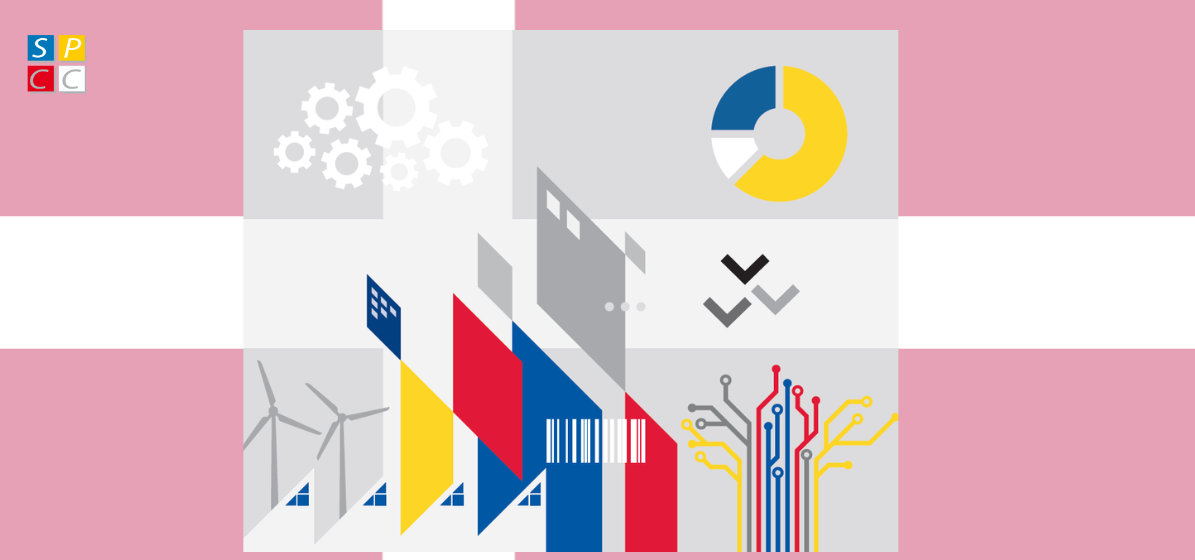
Poland and Denmark are linked with strong economic relations and Danish companies have become an integral part of the Polish economic landscape. In this report, prepared in cooperation with the Embassy of Denmark in Poland, we summarise the presence of Danish companies in Poland and trade relations between Poland and Denmark, and present potential areas…
The report is part of a comprehensive publication summarising the presence of Scandinavian companies in Poland, prepared on the occasion of the 20th anniversary of the SPCC.
Leaders in investments
The 20th anniversary of the SPCC coincides with the 20th anniversary of Poland’s membership in the European Union. Poland’s accession to the European community has undoubtedly been a driving force behind our country’s impressive economic growth and an important factor encouraging foreign investors to enter the Polish market. Thanks to this, economic cooperation between Poland and Denmark has also reached a completely new, unprecedented level.
Direct Danish investment in Poland already amounts to EUR 6 billion and accounts for almost 40% of all Scandinavian investment in Poland. Since 2017, the level of investments has increased by 75%, which was the largest increase in invested capital among all Scandinavian countries.
Moreover, Danish investors are the undisputed leaders in the West Pomeranian Province – capital from Denmark accounts for over half of the foreign capital invested in this region. In several areas, Danish investments are of strategic importance to the Polish economy – this applies, among others, to food processing (companies such as Sokołów and Espersen), the construction industry and offshore wind energy.
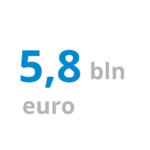
the amount of capital invested by Danish companies in Poland
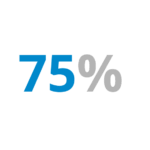
the increase in Danish investments in Poland from 2017 to 2022

number of people employed by Danish companies in Poland
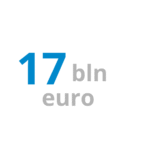
is the value of trade turnover between Poland and Denmark in 2023
Polish-Danish trade exchange
Danish companies influence the Polish economy not only through direct investments, but also through mutual trade, which is already worth EUR 17 billion. Denmark is Poland’s second largest trading partner among the Scandinavian countries after Sweden, with a total trade volume very similar to that of Sweden (even though the Danish economy is one third smaller than the Swedish economy).
Over the last two decades, the volume of trade in goods between Poland and Denmark has increased fourfold. Trade in the services sector is developing even more dynamically: between 2012 and 2022, the surplus in trade in services with Denmark increased nearly tenfold. Denmark is also the second most dynamic Scandinavian country after Norway in terms of trade with Poland. In recent years, the food sector has had a major impact on this, but trade with Denmark is the most diversified of all the Nordic countries in terms of industry.
Danish companies in Poland
There are over 750 companies with Danish origin operating in Poland, employing a total of over 75,000 people. The largest Danish employers in our country are Sokołów, part of the Danish Crown group, and Netto. Both companies employ a total of almost 16,000 people. In addition to the food sector and the construction industry, Danish companies are particularly active in the medical devices, renewable energy and trade sectors.
Potential for partnership
Poland and Denmark have a rich history of cooperation in the field of energy transition, which contributes to the achievement of both countries’ climate goals. Danish business offers significant potential for partnership in the areas of decarbonisation and new technologies – cooperation in these areas can help address the socio-economic challenges that lie ahead in the near future. The development of renewable energy, energy efficiency and buildings’ renovation are just some of the areas of decarbonisation in which Polish and Danish businesses can join forces.
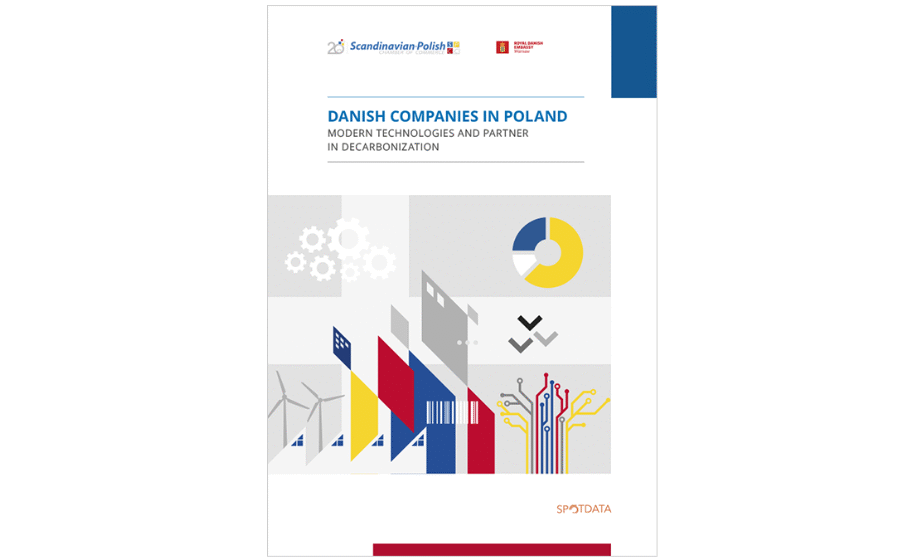
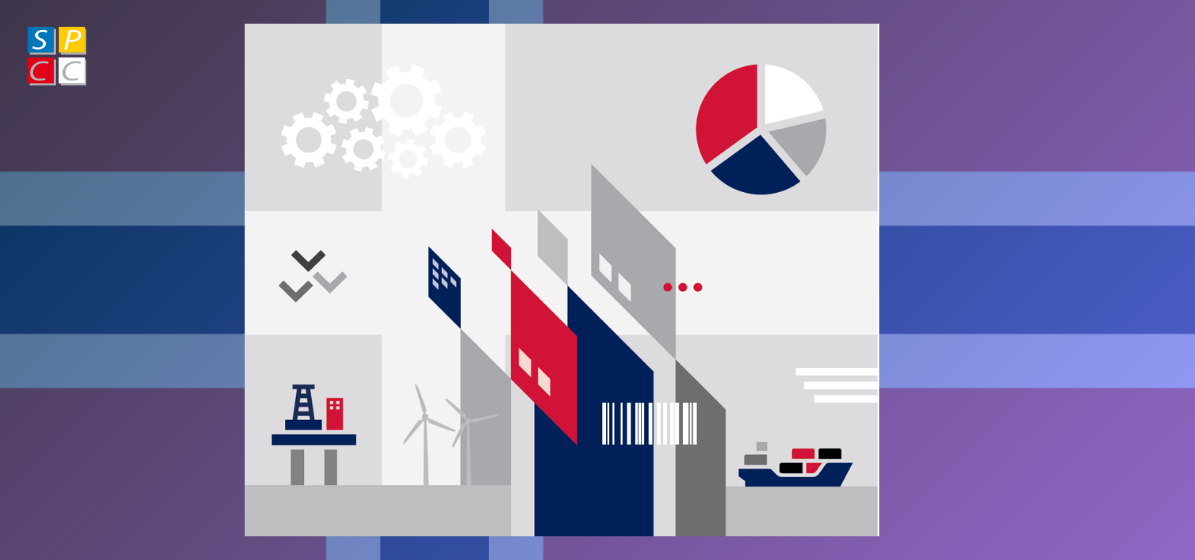
Economic cooperation between Poland and Norway is unique and has several important dimensions. The 20th anniversary of the SPCC is an excellent opportunity to summarise the scale of cooperation, investment, mutual trade and the activities of Norwegian companies in Poland. Norway also plays a key role in increasing Poland’s energy security.
The report “Norwegian companies in Poland – sustainable business for a green future and reliable energy supplies” was prepared in cooperation with the Norwegian Embassy and is a part of a project prepared to mark the 20th anniversary of the SPCC.
Investments and activities of Norwegian companies in Poland
Norwegian investments in Poland amount to almost EUR 4 billion, half of which are direct investments and the other half are portfolio investments of the Norwegian Government Pension Fund Global. In regional terms, most Norwegian investments are located in the provinces of Mazovia, Lower Silesia, Pomerania and West Pomerania. There are approximately 400 Norwegian companies operating in Poland, directly employing 20,000 people. However, 65,000 people are employed in the entire supply chain related to exports to Norway. The presence of Norwegian companies is particularly visible in food processing, manufacturing, selected services and the energy sector, and has a strong impact on Polish-Norwegian economic relations. The largest Norwegian employers in Poland are Mowi and Norsk Hydro.
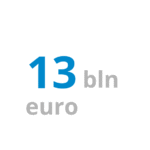
the value of Polish-Norwegian trade exchange

Norwegian companies are present in Poland
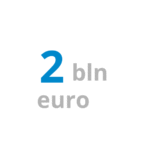
The allocation of EEA and Norway Grants (of which Norway provides 97%) to Poland since 2004.

the share of Poland’s gas imports provided by the Norwegian fields in the North Sea
Polish-Norwegian trade exchange
Polish trade with Norway has grown faster than with any other Scandinavian country over the last 20 years. Both countries play a strategic role for each other – Norway is an important supplier of raw materials and technology, while Poland provides processing capacity and a large pool of specialists, including in technological fields. In the 20 years since Poland joined the European Union, the total value of trade has increased by 880 per cent – from EUR 1.3 billion to EUR 13 billion. After 2020, accelerated growth has been recorded, partly due to gas transmission via the Baltic Pipe gas pipeline. At the same time, trade in other strategic sectors such as food, machinery, shipbuilding, automotive, business services and transport remains at a high level. Norway is the largest supplier of fresh fish to Poland. The machinery and shipbuilding sectors are also important areas of cooperation. In addition, Norway is Poland’s second largest export market for boats, ships and its parts.
Norway’s role in ensuring energy security
Through the Baltic Pipe project, Norway is Poland’s largest gas supplier, therefore playing a key role in ensuring Poland’s energy security. 48% of gas imported to Poland comes from deposits on the Norwegian Continental Shelf. At the same time, Norway is investing in renewable energy sources and decarbonisation. Norwegian investors such as Equinor are developing offshore wind projects and driving the renewable energy value chain in the Baltic Sea. Together with its Polish partner, Polenergia, Equinor is developing investments with a capacity of up to 3 GW in three projects: Bałtyk I, Bałtyk II and Bałtyk III. The first energy from the Bałtyk II and Bałtyk III projects is expected to flow into the grid as early as 2027.
Offshore and onshore energy, photovoltaics, carbon capture and storage (CCS), and maritime safety are important elements of Norway’s commitment to stabilising energy supplies in uncertain times. In summary, Norwegian energy investments are an essential contribution to stable and resilient energy supplies in Poland.
The EEA and Norway Grants
Poland is the largest beneficiary of the EEA and Norway Grants – since 2004, approximately EUR 2 billion has flowed into our country. Another EUR 925 million has been allocated to Poland, which will be available in the new 2021-2028 perspective. Part of these funds will also be allocated to challenges related to the green transition. The largest part of the Funds is dedicated to environmental issues and climate change, promoting sustainable energy while helping Poland adapt to the European Green Deal. In recent years alone, such measures have resulted in significant annual energy savings. The EEA and Norway Grants are also used to implement pilot projects promoting new technologies and innovations in key areas of renewable energy, including hydropower and geothermal energy. The EEA and Norway Grants also contribute to research and innovation, supporting Polish and Norwegian scientists in joint projects.
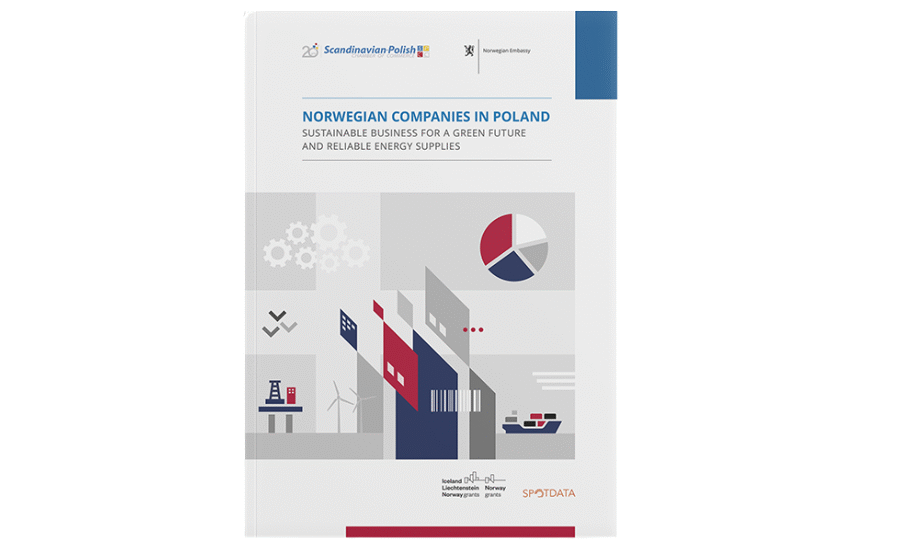
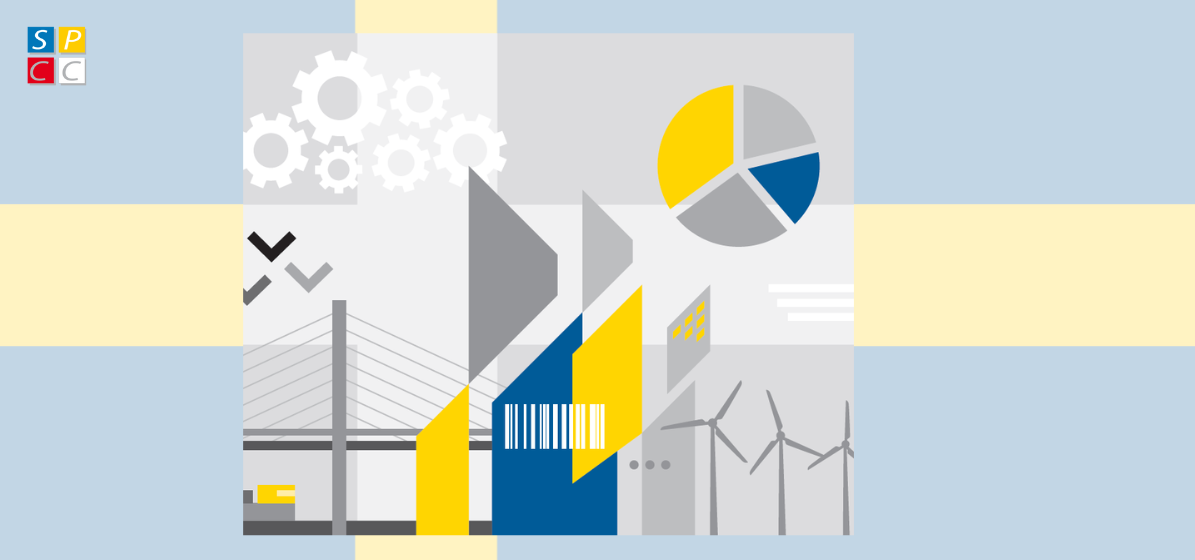
Economic relations between Poland and Sweden are in a completely different place today than they were 20 years ago. The SPCC report, prepared in cooperation with the Embassy of Sweden, presents the scale of Swedish companies’ activities in Poland and the changes that have taken place in trade relations since Poland’s accession to the EU.
The report is part of a comprehensive publication summarising the presence of Scandinavian companies in Poland, prepared on the occasion of the 20th anniversary of the SPCC.
Swedish investment in Poland
Swedish investments in Poland on a larger scale appeared as early as the beginning of the 20th century. Today, over 700 companies with Swedish origin operate in Poland, with investments worth EUR 5.5 billion and employment reaching approximately 109,000 people. Swedish investors treat Poland loyally as a long-term place of engagement and systematically reinvest over 90% of their profits, significantly more than investors from other countries (for comparison, the average reinvestment rate for all investors is 58%). Discussions with representatives of Swedish companies show that the vast majority plan to continue to develop here and make capital investments over the next five years. This proves that Poland has been and continues to be treated by Swedish companies as a long-term commitment.
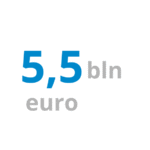
current value of Swedish investments in Poland, having increased by 40% over the past five years
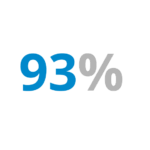
Percentage of profits generated in Poland that Swedish investors reinvest
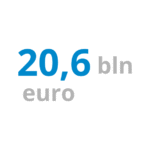
Total trade turnover between Poland and Sweden

Number of individuals employed by Swedish companies in Poland
Trade exchange
Since Poland joined the European Union in 2004, trade between Poland and Sweden surged nearly 400%, increasing from EUR 4.2 billion to EUR 20.6 billion by 2023. This increase encompasses both goods and services. Poland noted a substantial trade surplus with Sweden, which stood at EUR 2.6 billion in 2023. The trade benefits extend beyond direct exporters to encompass the entire supply chain, which generates 1% of GDP and supports around 150,000 jobs.
Transfer of knowledge and know-how benefiting both sides of the Baltic Sea
Swedish companies rank among the top foreign investors in terms of R&D spending, outperformed only by companies from Germany, France and the USA. In the broader Polish economy, 1,5% of the workforce is involved in research and development, compared to 4,5% in Swedish-owned companies. This results in a knowledge transfer to the Polish economy.
Swedish investors convey production know-how to the Polish market through various channels. These companies also pass on part of their know-how to suppliers and collaborators and work alongside them to enhance the quality of the products they deliver. The accumulation of human capital through training using Swedish methodologies and the advancement of Polish employees to international managerial roles is essential.
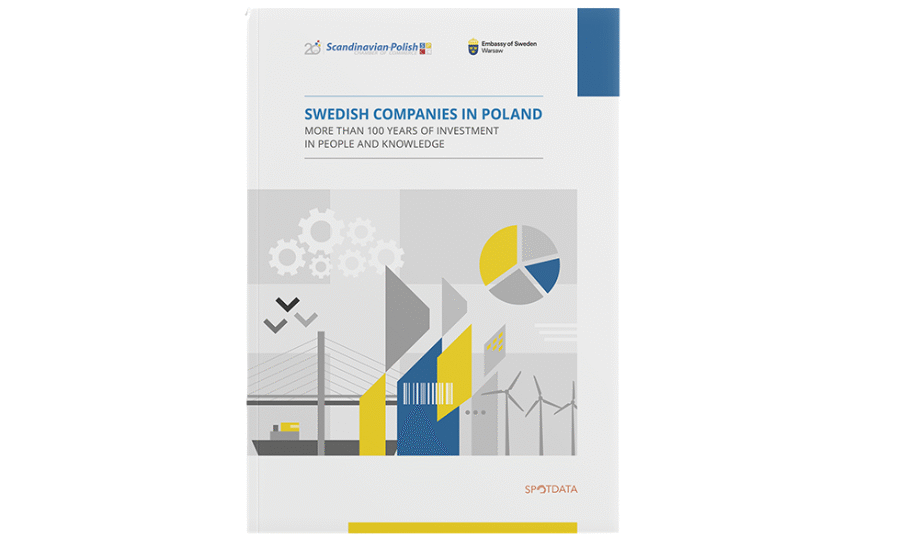

This publication highlights the significant presence of Finnish investors in Poland, the development of trade relations and the growing impact of knowledge and innovation exchange, which benefits both economies.
We are pleased to present the report “Finnish companies in Poland – from modern industry to sustainable development” prepared by the Scandinavian-Polish Chamber of Commerce under the honorary patronage of the Embassy of Finland in Poland.
The report is part of a large-scale project marking the 20th anniversary of the SPCC, summarising the presence of Nordic companies in Poland, investments made in the Polish market over the last two decades, and the scale of trade.
Finland and Poland are linked by a strong and dynamic economic partnership, which includes €2 billion in Finnish investments and a contribution to Poland’s GDP worth PLN 9 billion. Over the past two decades, our trade relations have strengthened significantly – Polish exports to Finland have increased almost sixfold since 2004, and total trade reached €6.7 billion in 2023.
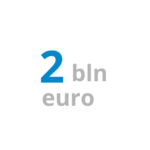
is the value of capital invested by Finnish companies in Poland
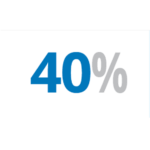
the increase in Finnish investments since 2017

number of people employed by Finnish companies in Poland
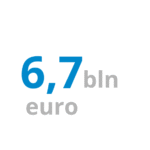
the value of trade between Poland and Finland
The presence of Finnish companies promotes the exchange of knowledge and innovation, contributing to the development of modern industry and advanced services, benefiting both economies. The new technologies sector is developing particularly dynamically, with Finnish companies significantly increasing their presence in Poland, taking advantage of the strong domestic market, highly qualified staff and the opportunity to reach global customers.
In addition, Finnish companies are actively participating in the green transformation of the Polish economy, focusing on sustainable development and long-term value creation. As both economies evolve, our partnership continues to offer new opportunities for growth and cooperation, even in increasingly challenging times.
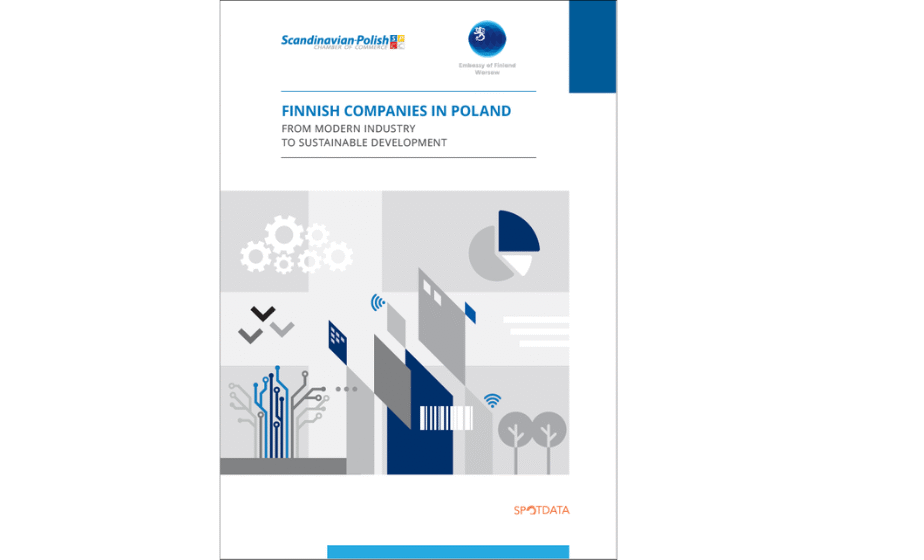
With their strong focus on innovation, technology, and sustainability, Finnish businesses have made a significant
impact on Poland’s economic landscape.
Päivi Laine
Ambassador of Finland to Poland
For Fortum, Poland represents a land of opportunities. We see immense potential in the further transformation of the sector, which is both a major challenge and an opportunity for the development of district heating.
Piotr Górnik
VP Heating and Cooling Poland, CEO of Fortum Power and Heat Polska Sp. z o.o.
One of the key areas that has significantly expanded in the recent year is preventing financial crime. Poland has become a European competence hub in this area and as such has attracted various financial institutions, including Nordea.
Paweł Jemioł
Head of Operations, Nordea
Production plants in Poland, located in Ostrołęka, Łódź, Mosina, and Tychy, are an integral part of Stora Enso’s structure, supporting the company’s strategic goals, such
as striving for sustainability and innovation. Due to its
strategic location, close to important European mar-
kets and well-developed infrastructure, Poland plays
a key role in our company’s global structure.
Tomasz Żebrowski
President of the Management Board of Stora Enso Poland SA
Contact
Do you have any questions? Write to us!
We will contact you as soon as possible.
Contact details
Scandinavian – Polish Chamber of Commerce
Marszałkowska 142, 6th floor
00-061 Warszawa
+48 22 849 74 14
How to get therespcc@spcc.pl
Contact Form